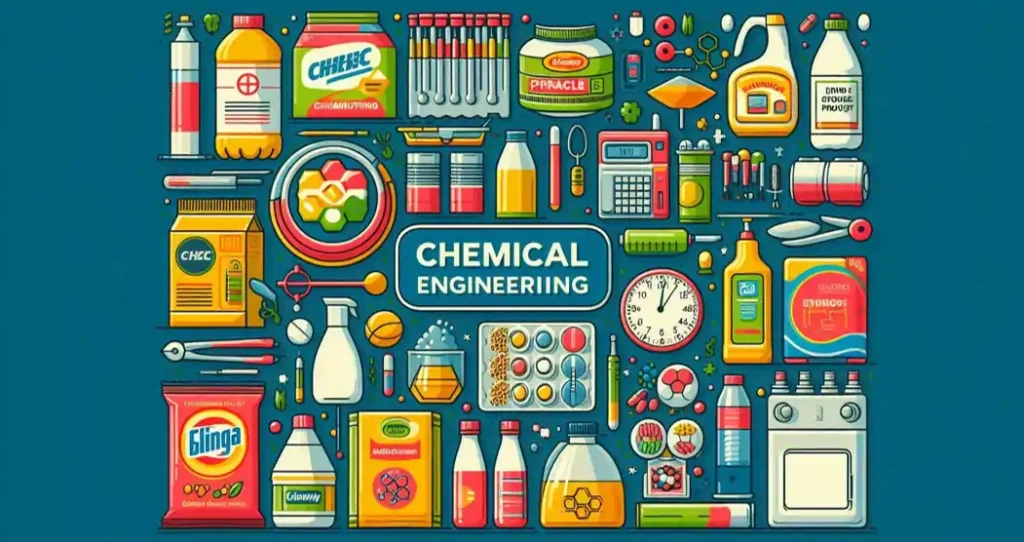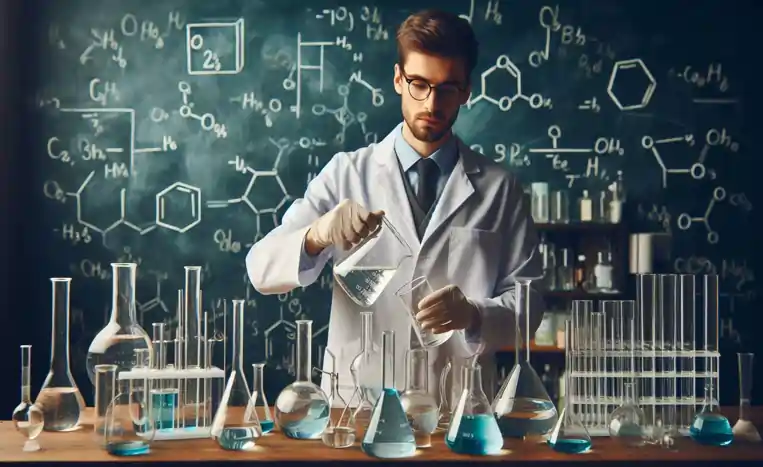Chemical Engineering is very essential field that impacts our everyday life. From the clean water we drink to the energy that power our home, Chemical Engineering play an important role in developing and optimizing processes that make our modern living possible.
In this article, we will learn various ways how chemical engineering is involved in our daily routines, its contribution in various industries and technological advancement in this.
Table of Contents
What is Chemical Engineering?
Chemical Engineering is multi-disciplinary branch of engineering that combines principles of chemistry, physics, mathematics, biology, and economics to efficiently use, produce, design, transport, and transform energy and materials.
Chemical engineering is an engineering field which deals with the study of operation and design of chemical plants as well as methods of improving production.

Chemical engineering is having an important role in our daily lives, it is a cornerstone of many industry that produces product, goods or service which is essential for a quality of life. Here are some areas where chemical engineering makes a significant impact:
Food and Beverage Industry
Chemical Engineering design processes that ensures safe and efficient production of food and Beverages starting from food processing to the additives and flavorings.
- Pasteurization technique which involves heating of food for removal of harmful microorganisms for extending the shelf life.
- Fermentation processes, optimized condition for microbial growth and product formation for the production of products like yogurt, cheese, and beers.
- Food additives such as preservatives, colorants and flavoring agents are added in the food for increasing the taste, appearance and shelf life of products. For example, ascorbic acid (vitamin C) is used in fruit juices to prevent oxidation and maintaining nutritional value.
Related: Heat Transfer Concepts and Calculators
Pharmaceuticals
Chemical Engineering plays an important role in the scaling up the production of pharmaceuticals from laboratory to industrial scale. It includes the synthesis of active pharmaceutical ingredients (APIs) and formulation of tablets and capsules.
In the development of biopharmaceuticals, such as monoclonal antibodies and vaccines. For example, the production of Insulin involves the genetic engineering of bacteria.
Renewable Energy
Chemical Engineers are plays the major role in the developing renewable energy technologies. For example the production of biofuels from biomass, such as ethanol from corn or biodiesel from vegetable oils.
Design and operation of refineries that convert crude oil into various fuels, such as gasoline, diesel, and jet fuel. Also, the improvement in efficiency and cost-effectiveness of solar panels, wind turbines, and hydrogen fuel cells.
Related: Mass Transfer Concepts and Calculators
Household Products
Chemical Engineers are capable of formulating a wide range of cleaning products including detergents, soaps and disinfectants, they are designed to remove dirt, greases and harmful micro-organism from surfaces. These items are used in everyday household items.
Another formulations are personal care products like shampoo, conditioners, lotions and cosmetics. For example, the development of moisturizing creams which is used for skin hydration.
Water Treatment
Clean water is good for health and essential for life, Water Purification techniques like RO (Reverse Osmosis) and other methods are other methods are developed and designed by the chemical engineering ensures the availability of safe drinking water.
Treating sewage and industrial wastewater to protect environment and public health, developing technologies for converting sewage into portable water.
Advanced Materials
Nanomaterials, Composites and Smart Materials are the new materials developed with advanced properties for various applications. For example, composites are used to achieve strength, flexibility and light weight characteristics. Temperature control blankets which change properties in response to external atmosphere and adjust temperature inside the blanket.
Another example is graphene which is single layer of carbon atoms arranged in a 2-D honeycomb lattice, it is 200 times stronger than steel by weight and is good conductor of heat and electricity. Due to its advanced properties, graphene is used in electronics and energy storages.

Battery Technology
From the design and development of new battery materials and optimization of production processes to ensure safe and efficient operation of batteries.
For example, battery electrodes and electrolytes materials like lithium nickel cobalt manganese oxide (NCM) and lithium iron phosphate (LFP) for their better to store and release energy efficiently and their stability during repeated charging and discharging cycles.
Manufacturing ecofriendly, which reduces the environmental impact of battery production through waste minimizing and using less harmful materials.
Renewable Plastics
Renewable plastics, also known as bioplastics, which are derived from renewable resources like plants, algae, or microorganisms. Chemical Engineering plays an important role in selection of feedstock, processes and manufacturing and their environmental effects.
For example, PLA ( Poly Lactic Acid) which is widely used bioplastic (made from corn starch or sugarcane) is used in packaging, disposable tableware and 3D printings.
Another examples of renewable plastics which are used in everyday life are PET bottles, starch based plastics, paper cups, Poly-Hydroxy Alkanoates (PHA). These plastics are biodegradable or compostable and sustainable alternative to conventional petrochemical-based plastics.
Final Thoughts
Chemical Engineering plays an integral to our daily lives, it is present in everything from the purity of our drinking water to the efficiency of the energy that powers our homes.
It plays an important role in optimizing, designing, developing the industries like Food and Beverages, Pharmaceuticals, Renewable Energy and many more which is useful in our everyday life. Another major role of Chemical Engineers is in development of advanced materials, battery technology, renewable plastics and more.
Therefore, Chemical Engineering not only enhances our quality of life but also contributes to a more sustainable and innovative future.
Resources
- The Chemical Engineer Blog
- Consumer Products in everyday life – click here
- Chemical Engineering Website – link







Really insightful! Loved seeing how chemical engineering touches so many everyday products and processes—from food and fuels to cleaning supplies. Thanks for making these connections so clear and relatable!